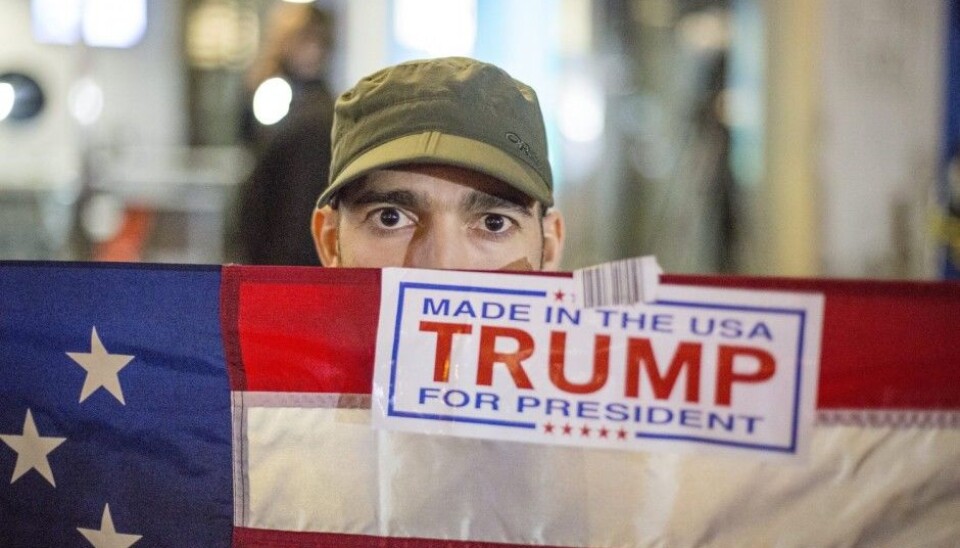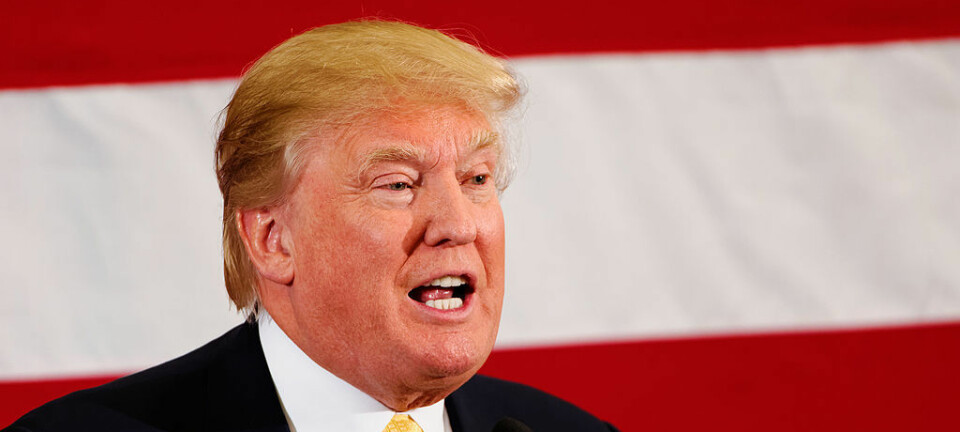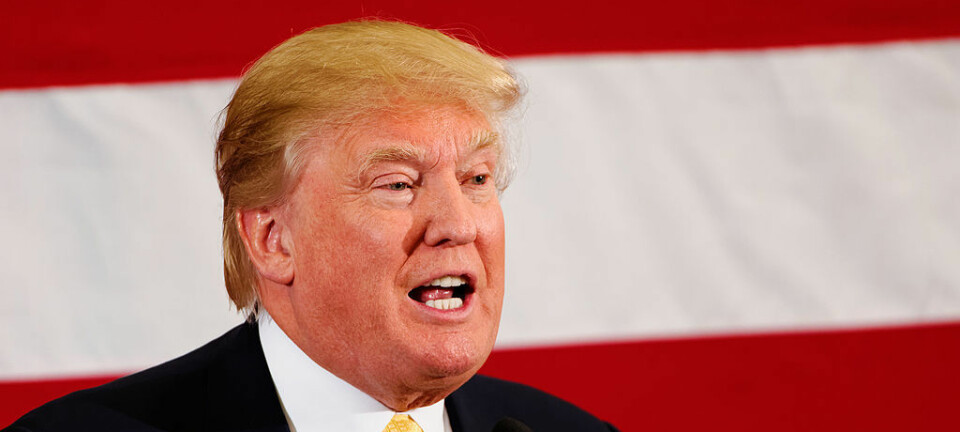
Trump win could be dramatic for Norwegian economy
Norwegian researchers think a President Trump could trigger a trade war and stagnation that would have an impact on Norway.
The Trump triumph came as a shock and can be calamitous in many ways, also for Norway, according to Norwegian research circles with expertise in international trade.
Trump might do as he has indicated and establish high import duties and barriers against other countries in an attempt to protect US industry.
A result can be lower oil prices and reduced demand for other Norwegian export products.
Norway vulnerable
Stock markets nosedived after the Republicans won the elections in the USA, but they rebounded afterwards, as did the Oslo Stock Exchange.
“Norway is a very small country that is largely dependent on the economic conditions of its partners in trade,” says Arne Melchior at the Norwegian Institute of International Affairs (NUPI). He is a senior researcher and leads a research group that studies international economy.
Melchior points out that if Trump follows through and rips up the USA’s trade agreements and establishes high protective tariffs against other countries, this can in worst case lead to trade wars.
“This will have an impact on everything from the price of oil to lower demand for other goods we export,” he says.
Promised to protect the USA
Protectionism is one of Trump’s obsessions, explains Melchior.
“Trump has attacked free trade throughout the election campaign and depicted the USA as a victim of unfair competition from abroad,” he says.
“The repercussions of imports from China have impacted the White middle class in the USA and that’s a large reason why he won the election,” says the NUPI researcher.
Trump’s notion of the USA being out-competed by other countries and his promise to do something about it were applauded by the masses, even though Trump did not get the majority of the total vote.
“Some of this development is caused by American corporations flagging out,” says Melchior.
Limited by signed agreements
However, Melchior stresses that we do not really know what Trump is actually going to do, or fully what he would like to do.
“What is he capable of, and what are just empty slogans?”
Melchior points out that the next president is limited by trade agreements involving the WTO that have been signed by the President and ratified by Congress.
Nevertheless, these agreements do provide some leeway for protectionism. The member countries can react to distortion of competition, such as price-dumping, from the countries from which they import goods.
“Therefore they might initiate more monitoring of other countries’ subsidies of goods which they export to the USA,” he says.
Direct impact on Norway
Trump is primarily afraid of trade with low-cost countries, so high tariffs specifically aimed at Norway are unlikely, reasons Andreas Moxnes, of the University of Oslo’s Department of Economics.
But it would be damaging for the world economy if Trump contributes to unpredictability in trade policies and in a worst-case scenario – a global trade war. That would have considerable negative consequences for all countries, including the Nordic countries.
“We know this because research shows that economic integration is essential for growth in productivity and economic development,” stresses Moxnes.
Shaking things up
The 45th president could shelve trade agreements that have not yet been ratified, based on what was said during the election.
“This applies especially to the TPP agreement for the Pacific Ocean region, which entails many of the Asian countries, except China and South Korea.”
Nor is India a party to it either.
“This also sheds doubts about the TTIP agreement, which Norway could choose to be part of. But Trump first has to get an administration up and running and maintain relations with Congress,” says Melchior.
Weak wage development
Trump is dependent on the support of the legislative bodies. But there are trends in American politics going the same way, also among the Democrats. Bernie Sanders strongly opposes the Trans-Pacific Partnership.
“Clinton also talked about bolstering the country’s trade defences,” Melchior says.
The poor income developments for the middle class have made it necessary for many to have multiple jobs. Hourly wages in American industry have stood still for several decades.
At the same time, the richest sliver of the population has become increasingly wealthy.
“This has provoked masses of people,” says Melchior.
Nevertheless, establishing policies that would help level out the distribution of wealth in the USA is no easy task. Increasing public spending is highly controversial, as the debate and opposition to affordable health care (“Obamacare”) demonstrated.
High import duties will raise costs of goods
Yet the American president has quite a lot of political leeway in foreign affairs, including international trade policies, confirms Moxnes.
Trump can probably carry out sweeping reforms if he wishes. He has not really explained yet what he plans to do, or at least detailed how his changes will be implemented.
“High import barriers in the USA would make goods in the stores more costly,”points out Moxnes. This would hurt voters and also hurt many American companies who use foreign sub-suppliers.
So the policies we see coming in 2017 might be less radical than the promises made during the campaign.
More tension
In any case, if the USA follows through on its restrictions on price-dumping we can expect higher tension in world trade.
“This will have impacts on Norway too, as there could be lower demand for Norwegian exports.”
So far, we do not know whether Trump will be a soft version of himself or a hard Trump like he was in the election campaign.
“We have to hope for the best,” says Melchior.
Translated by: Glenn Ostling
































